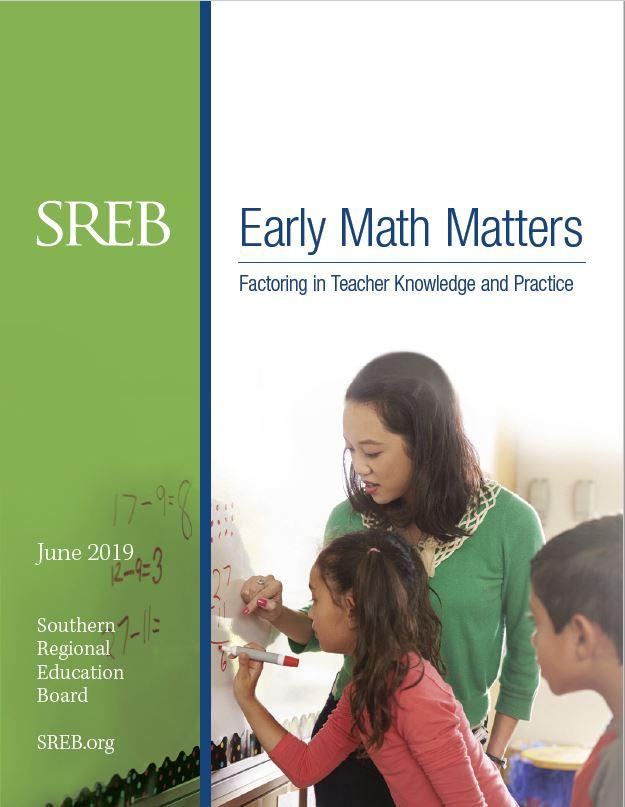Math for Elementary Students and Their Teachers
How to improve math instruction for young students
SREB’s Early Math Matters: Factoring in Teacher Knowledge and Practice shows why math is so critical for young students and recommends ways to improve math instruction in elementary schools.
Why Early Matters: The Snowball Effect
Students who finish fifth grade without mastering key math concepts have difficulty keeping up in later grades and may struggle to earn the math credits required for graduation.
“It’s the snowball effect. Math builds on itself, so if students don’t master critical concepts early on, they have trouble tackling more complex material in middle and high school,” says Samantha Durrance, SREB policy analyst and author of the report. “Without a strong foundation, they fall further and further behind.”
“Students who view math as an inborn trait tend to experience more anxiety when faced with a challenging math problem.”
Math Anxiety: Preventing Spread
A child who feels fear or dread of math problems—rather than a desire to tackle a challenge—is likely experiencing math anxiety. It can affect students even in the early grades, when building math foundations is paramount, and slow their long-term achievement.
One source of math anxiety: the adults in students’ lives. Teachers and parents can unknowingly pass on their own negative feelings about math.
Studies show that a teacher who lacks confidence in his or her own math skills can cause students to develop a fixed mindset about math. And students who view math as an inborn trait—instead of a skill that can be developed—tend to experience more anxiety when faced with a challenging math problem.
Blog post: Why Do We Say “I’m Bad at Math”? >
Dyscalculia: A Learning Disability in Mathematics
The less common and less understood cousin of dyslexia, dyscalculia is a learning disability in mathematics thought to affect 5% to 7% of people. As with dyslexia, students with dyscalculia have the best chance at success if they are identified and provided with intensive intervention as early as possible. Early Math Matters calls for more research on the condition and strategies to teach students affected by it.
The Tools Teachers Deserve
Elementary school teachers need a deep understanding of math concepts as well as the skills to teach them. But many aspiring teachers enter teacher prep programs with limited math skills. And their preparation must cover language arts, math, science and social studies, since they will teach all core subjects. Early Math Matters recommends:
1. Be sure new elementary teachers are well prepared to teach math before they enter the classroom.
- Require courses on math content and teaching methods in teacher preparation programs.
- Set statewide standards and competencies in math for new elementary teachers.
- Review state licensure exam requirements to be sure they adequately assess the skills elementary teachers need for math.
The SREB report compares course requirements in educator preparation programs and details exam requirements for licensure by state.
2. Provide elementary teachers effective, evidence-based professional development. Require evaluation of the training options to make sure they do what they promise.
Blog post: Giving Elementary Teachers the Tools to Teach Math Well >


